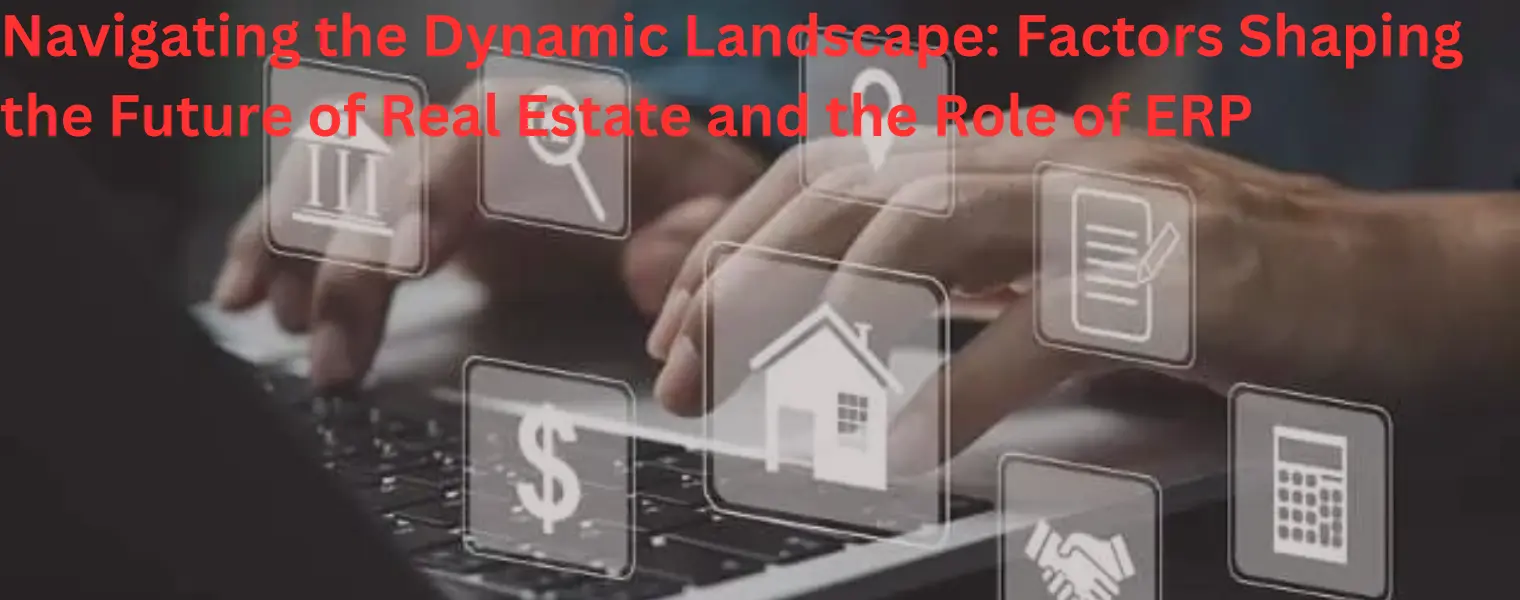
In the ever-evolving realm of real estate, several dynamic factors are shaping the industry's landscape, influencing how businesses operate and succeed. From technological advancements to changing consumer preferences, the real estate sector is undergoing a significant transformation. One crucial tool that has emerged as a linchpin in adapting to these changes is Enterprise Resource Planning (ERP).
The integration of cutting-edge technologies, such as artificial intelligence, virtual reality, and smart home solutions, is reshaping the real estate experience for both developers and buyers. From immersive property tours to predictive analytics for market trends, technology is enhancing efficiency and decision-making.
With a growing emphasis on environmental consciousness, sustainable and green building practices have become integral to real estate development. Factors like energy efficiency, eco-friendly materials, and green certifications are increasingly influencing property values and market demand.
Evolving consumer preferences are driving a shift in the types of properties in demand. The desire for smart homes, flexible spaces, and eco-friendly designs reflects the changing expectations of modern homebuyers. Real estate businesses need to align their offerings with these shifting preferences to stay competitive.
Economic factors, both local and global, significantly impact the real estate market. Fluctuations in interest rates, inflation, and economic stability can influence property values, investment decisions, and the overall health of the real estate sector.
The rise of remote work has altered the demand for office spaces and residential properties. Real estate developers need to adapt to the growing trend of flexible work arrangements and design spaces that cater to the changing needs of a remote and hybrid workforce.
Enterprise Resource Planning (ERP) systems play a pivotal role in helping real estate businesses navigate these dynamic factors and stay ahead in the market. Here's how DoFort Real Estate ERP connects with the changing landscape.
ERP platforms aggregate and analyze vast amounts of data, providing real-time insights into market trends, customer preferences, and project performance. This enables real estate professionals to make informed, data-driven decisions that align with the evolving landscape.
ERP streamlines project management by integrating various processes, from planning and design to construction and post-construction activities. This efficiency is crucial in meeting tight timelines, managing resources effectively, and adapting to changes in project scope.
DoFort Real Estate ERP is designed to be adaptable and scalable, allowing real estate businesses to adjust to changing market conditions and scale operations as needed. This flexibility is vital in responding to shifts in demand, economic trends, and business strategies.
As consumer expectations evolve, effective CRM tools within ERP systems help real estate businesses understand and cater to individual preferences. This personalized approach enhances customer satisfaction and builds long-term relationships.
With an increasing focus on sustainability and green building practices, ERP systems assist in ensuring compliance with environmental standards and regulations. This not only meets legal requirements but also enhances the market appeal of properties.
Facing rapid shifts in the real estate industry, companies need to embrace innovation and utilize ERP tools to remain competitive, as the capacity to adjust to technological advancements, changing consumer expectations, and economic fluctuations is imperative for sustained success; incorporating DoFort Real Estate ERP into their operations positions real estate professionals to navigate industry complexities with agility, efficiency, and a strategic advantage. Reach out to us for more information on the features and benefits of DoFort Real Estate ERP and to schedule a comprehensive demonstration.
Welcome to DoFort !